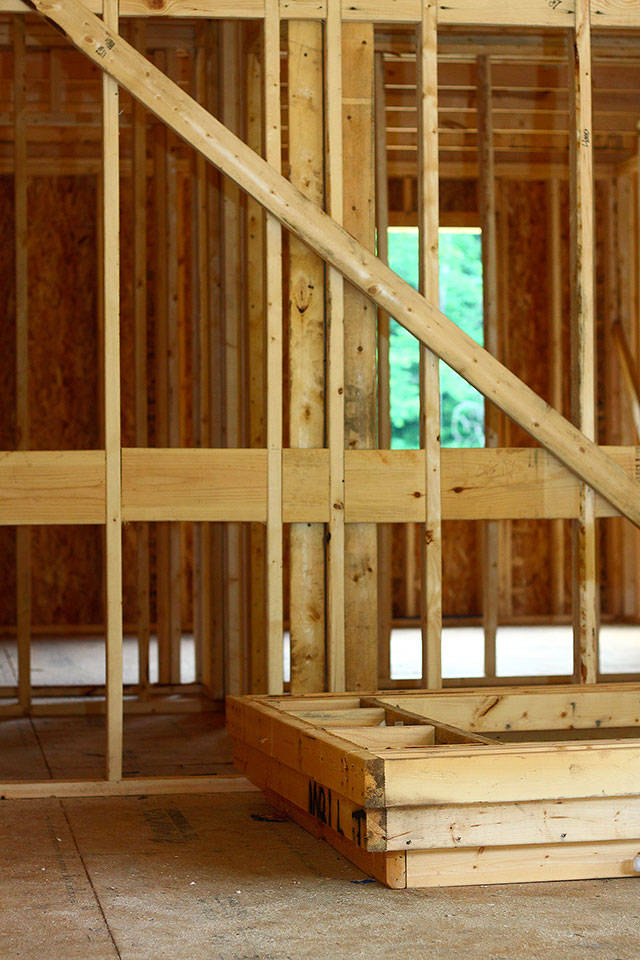Challenge Seattle, an alliance of CEOs from 17 of the Seattle region’s leading businesses and philanthropies, issued a new report Wednesday that outlines ways the public and private sectors can help address the region’s middle-income housing affordability crisis.
Based on data analysis and research of national and international best practices, the report outlines an often invisible challenge: the lack of affordable homes for middle-income families and individuals, according to a Challenge Seattle news release. Additionally, the report describes the consequences of inaction and offers a set of recommended public- and private-sector steps to address the current market gap in affordable homes.
“Housing affordability is one of the biggest threats to our quality of life and economic future,” said Challenge Seattle CEO Christine Gregoire, a former Washington governor, in the release. “While we must remain steadfastly committed to addressing the toll on low- income and homeless residents, we must also recognize a growing and less visible aspect of the affordability crisis – middle-income families and individuals are being priced out of our community.”
“These are the people our community depends on every day—our teachers, nurses, first responders, electricians, and civil engineers,” said Phyllis Campbell, chairman, Pacific Northwest JPMorgan Chase and Challenge Seattle member. “It’s a crisis when the very people who built our cities and spend their lives in service to the community can no longer afford to call it home.”
Today, a middle-income household can no longer afford to rent or buy a median priced home in most King County zip codes. Home prices have risen 60 percent in the last decade – three time the national average – and the median home price now stands at seven times the median household income. A registered nurse earning $80,000 per year was priced out of a median priced home in Seattle in 2013; in 2017, Renton became too expensive.
In 15 recommendations, Challenge Seattle calls for the private sector to provide new sources of capital and land, the public sector to make needed policy changes and investments, and the community to support change and make room for new neighbors. Specific recommended actions include: creating new sources of below-market capital and discounted land; zoning changes to increase density and encourage transit-oriented development; streamlined permitting and relaxed parking requirements; new community investment vehicles; and deployment of construction technology and innovation.
“From experience, we know that neither the public sector nor the private sector can fix this problem alone. We all need to work together in partnership,” said Redmond Mayor John Marchione. “That is why I am pleased to be partnering with my fellow mayors and Challenge Seattle on this crisis. By combining new sources of capital with common sense policy changes, we can significantly move the ball forward.”
The fellow mayors Marchione referred to includes Kent Mayor Dana Ralph.
For its part, Challenge Seattle will lend its voice, data, expertise, and resources. The organization will also encourage investment and support the public-private partnerships needed to address the crisis. Important first steps have already been taken. Earlier this month, Microsoft, a Challenge Seattle member, announced an unprecedented $500 million investment in affordable housing – including $225 million to specifically address middle-income housing affordability. In addition, Challenge Seattle is partnering with mayors from King County’s largest cities and the county executive who have publicly committed to advance middle-income housing affordability.
“Solving this invisible crisis will not be easy,” said Gregoire. “But if anybody can do it, our region can.”
For more information visit: challengeseattle.com.
Housing affordability
(Spending up to 30 percent of gross monthly income on housing costs)
King County median household income: $89,700
• Low-income household
Earns 60 percent of region’s median household income: $53,800
• Middle-income household
Earns 60 to 120 percent of region’s median household income: $53,800 to $107,600
• High-income household
Earns 120 percent of region’s median household income: $107,600 and higher
Source: Challenge Seattle
Talk to us
Please share your story tips by emailing editor@kentreporter.com.
To share your opinion for publication, submit a letter through our website https://www.kentreporter.com/submit-letter/. Include your name, address and daytime phone number. (We’ll only publish your name and hometown.) Please keep letters to 300 words or less.

